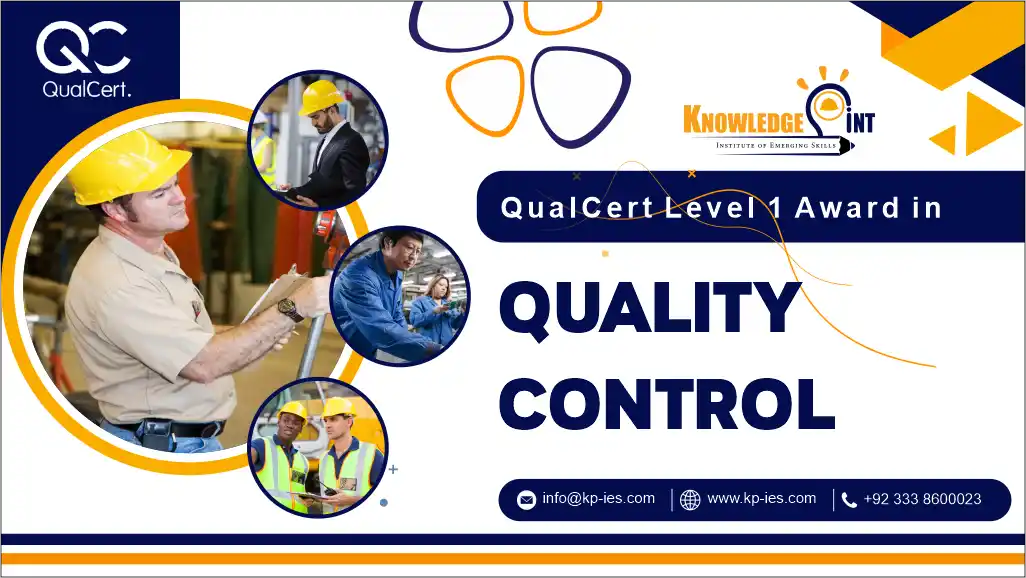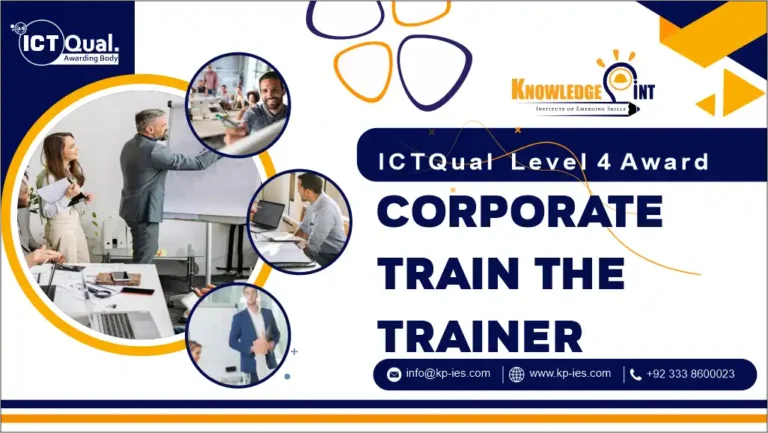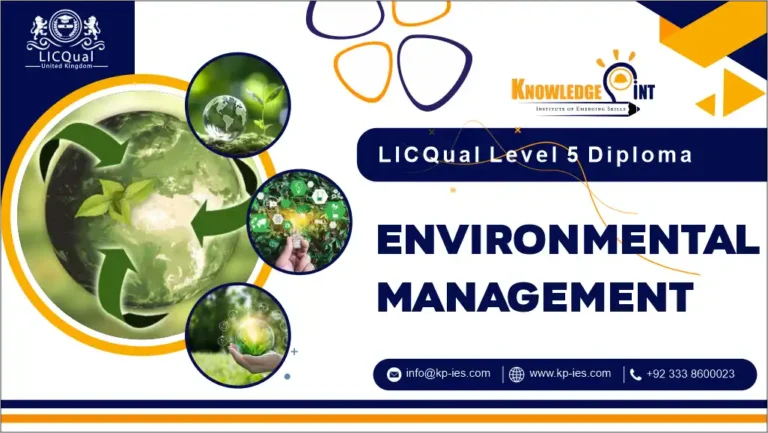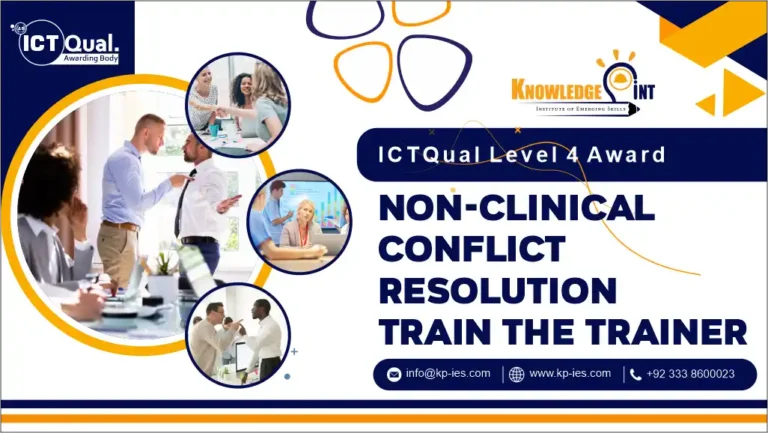In today’s competitive market, maintaining high-quality standards is essential for the success and reputation of any organization. Quality Control (QC) plays a critical role in ensuring products and services meet or exceed customer expectations. The QualCert. Level 1 Award in Quality Control (QC) offers an excellent starting point for individuals seeking to build a foundation in this vital area.
The QualCert. Level 1 Award in Quality Control (QC) is an introductory course designed to provide participants with fundamental knowledge and skills in quality control processes. This course covers the basic principles of quality control, essential tools and techniques, and the importance of maintaining quality standards in various industries.
The QualCert. Level 1 Award in Quality Control (QC) is your gateway to a successful career in quality assurance and control. By gaining a solid foundation in QC principles and practices, you’ll be well-prepared to contribute to organizational success and customer satisfaction. Whether you’re starting your career, changing fields, or looking to enhance your current role, this course offers the knowledge, skills, and recognition you need to succeed. Invest in your future today and take the first step towards becoming a quality control professional.
Course Overview
The QualCert. Level 1 Award in Quality Control (QC) consists of 10 mandatory units which are as follows.
The learning outcomes of QualCert. Level 1 Award in Quality Control (QC) include:
1. Fundamental Understanding of QC
- Comprehend QC Principles: Gain a solid understanding of the basic principles and objectives of quality control.
- Recognize QC Importance: Understand the significance of quality control in maintaining product standards and customer satisfaction.
2. Application of QC Tools
- Identify QC Tools: Learn to identify and use common quality control tools such as control charts, histograms, and Pareto analysis.
- Tool Implementation: Apply these tools effectively in various quality control scenarios to monitor and improve quality.
3. Data-Driven Decision-Making
- Analyze QC Data: Develop the ability to collect, analyze, and interpret quality control data.
- Inform Decisions: Use data-driven insights to make informed decisions that enhance quality and address issues.
4. Practical Problem-Solving
- Problem Identification: Identify quality-related problems using systematic approaches.
- Solution Implementation: Develop and implement practical solutions to resolve quality issues effectively.
5. Adaptability to Industry Contexts
- Industry Relevance: Understand how quality control principles and practices apply across different industries.
- Adapt QC Practices: Adapt QC methodologies to meet specific industry requirements and standards.
6. Effective Communication
- Communicate Findings: Develop skills to effectively communicate quality control findings and recommendations to stakeholders.
- Documentation Skills: Learn to prepare clear and concise QC documentation and reports.
7. Quality Improvement Initiatives
- Continuous Improvement: Understand the concept of continuous improvement and its importance in quality control.
- Initiate Improvements: Identify opportunities for quality improvement and participate in initiatives to enhance product and process quality.
8. Collaboration and Professionalism
- Team Collaboration: Work effectively as part of a quality control team, demonstrating collaboration and professionalism.
- Stakeholder Engagement: Engage with various stakeholders, including suppliers, customers, and colleagues, to ensure quality standards are met.
9. Certification and Career Advancement
- Achieve Certification: Successfully complete the course to earn the Level 1 Award in Quality Control certification.
- Career Opportunities: Leverage the certification to advance your career in quality control and related fields.
10. Ethical Considerations
- Ethical Practices: Understand the ethical considerations in quality control, including integrity, fairness, and responsibility.
- Ethical Decision-Making: Make ethical decisions that uphold the standards and values of quality control.
Course Benefits of the QualCert. Level 1 Award in Quality Control (QC) :
1. Specialized Expertise
- Auditing Proficiency: Gain specialized knowledge and skills in auditing energy management systems according to the ISO 50001:2018 standard.
- Industry Recognition: Earn a globally recognized qualification that demonstrates your proficiency as an energy management systems auditor.
2. Career Advancement
- Expanded Career Opportunities: Qualify for roles such as Lead Energy Auditor, Energy Management Consultant, or Compliance Officer.
- Higher Earning Potential: Enhance your value to employers and increase your earning potential with specialized expertise in energy management auditing.
3. Industry-Relevant Skills
- Practical Application: Acquire practical skills and techniques for planning, conducting, and documenting energy management system audits.
- Effective Communication: Develop communication skills to interact with auditees, audit teams, and stakeholders effectively.
4. Contribution to Sustainability
- Promotion of Energy Efficiency: Play a key role in promoting energy efficiency and reducing environmental impact within organizations.
- Support for Sustainable Practices: Assist organizations in implementing and maintaining energy management systems that support sustainability goals.
5. Quality Assurance
- Compliance Assurance: Help organizations achieve compliance with ISO 50001:2018 requirements and other relevant regulatory standards.
- Risk Mitigation: Identify areas of non-conformance and provide recommendations for corrective actions to mitigate risks.
6. Continuous Professional Development
- Lifelong Learning: Engage in continuous professional development by staying updated with the latest developments and trends in energy management auditing.
- Networking Opportunities: Connect with industry professionals, auditors, and experts, expanding your professional network and opportunities.
7. Organizational Benefits
- Improved Performance: Contribute to the improvement of organizational energy performance through effective auditing and recommendations for continuous improvement.
- Enhanced Reputation: Help organizations build a positive reputation for their commitment to energy management and sustainability practices.
8. Personal Growth
- Leadership Development: Develop leadership skills to effectively manage audit teams, delegate tasks, and ensure audit objectives are met.
- Confidence Boost: Gain confidence in your abilities as an energy management systems auditor through practical training and hands-on experience.
Earning the QualCert. Level 1 Award in Quality Control (QC) opens up various pathways for further education and career advancement. Here are some potential future progression opportunities:
1. Advanced Quality Control Certifications
- Level 2 and 3 Awards in Quality Control: Continue your education with higher-level certifications in quality control, deepening your understanding and expertise.
- Six Sigma Green Belt/Black Belt Certification: Obtain Six Sigma certifications to become proficient in process improvement methodologies.
2. Higher Education
- Associate Degree in Quality Assurance: Pursue an associate degree to gain more comprehensive knowledge of quality assurance and control.
- Bachelor’s Degree in Quality Management: Enroll in a bachelor’s degree program to develop advanced skills and knowledge in quality management and related fields.
3. Specialized Training and Certifications
- ISO 9001 Internal Auditor Certification: Become certified as an internal auditor for ISO 9001, enhancing your ability to conduct quality audits.
- Lean Manufacturing Certification: Learn Lean methodologies to further improve efficiency and quality in manufacturing processes.
4. Career Advancement
- Quality Control Technician: Advance to a role as a quality control technician, responsible for performing inspections and ensuring product quality.
- Quality Assurance Manager: Progress to a managerial position, overseeing quality control teams and processes.
- Quality Engineer: Become a quality engineer, focusing on designing and implementing quality control systems and processes.
5. Professional Development
- Continuous Learning: Attend workshops, seminars, and conferences to stay updated on the latest trends and best practices in quality control.
- Professional Organizations: Join professional organizations, such as the American Society for Quality (ASQ), to network with other professionals and access resources for continuous improvement.
6. Cross-Industry Opportunities
- Healthcare Quality Control: Apply your quality control skills in the healthcare industry, ensuring compliance with health and safety standards.
- Food Safety and Quality Control: Transition to the food industry, where you can focus on maintaining food safety and quality standards.
- Automotive Quality Control: Work in the automotive industry, ensuring that vehicles meet safety and performance standards.
7. Consulting and Entrepreneurship
- Quality Control Consultant: Offer consulting services to organizations looking to improve their quality control processes and achieve certifications.
- Start Your Own Business: Establish your own quality control consultancy or training business, leveraging your expertise to help other organizations succeed.
8. Teaching and Training
- Quality Control Instructor: Become an instructor or trainer, teaching quality control principles and practices to new students or employees.
- Corporate Trainer: Work as a corporate trainer, providing quality control training programs for businesses and organizations.
9. Leadership Roles
- Quality Director: Ascend to a leadership role such as Quality Director, where you’ll be responsible for the overall quality strategy and implementation across an organization.
- Chief Quality Officer (CQO): Aim for an executive position as a CQO, leading the quality assurance and control functions at the highest level within an organization.
10. Global Opportunities
- International Quality Standards: Work on implementing and maintaining international quality standards in global organizations.
- Cross-Cultural Quality Control: Develop expertise in managing quality control in different cultural and regulatory environments.
The QualCert. Level 1 Award in Quality Control (QC) is just the beginning of a rewarding journey in the field of quality assurance and control. By leveraging this foundational qualification, you can pursue advanced certifications, higher education, and diverse career opportunities across various industries. Whether you choose to specialize further, advance into managerial roles, or even start your own business, the skills and knowledge gained from this course will provide a solid foundation for your future success. Embrace the opportunities for continuous learning and professional development to make a significant impact in the world of quality control.







